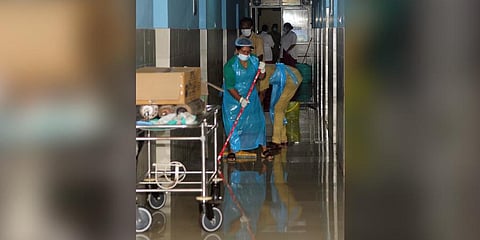

THIRUVANANTHAPURAM: The fourth occurrence of Nipah in the state has thrown more challenges to the health authorities with two index cases, one at Kozhikode and another one at Vadakara. According to health experts, the possibility of the presence of more than one index case (direct infection from an animal to a human) is baffling.
The transmission of the virus from bats to humans is considered a rare event. Even when the state reported three instances recently in 2018, 2019, and 2021, there was only one index case that infected others, at each outbreak.
“Two index cases of Nipah is highly improbable, statistically. It is difficult to believe. There could be some contact between the two victims,” said Dr K P Aravindan, a pathologist and a health activist. Dr Althaf A, epidemiologist and a professor at Government Medical College, Thiruvananthapuram, who conducted extensive studies on the Nipah outbreak in the state in 2018, said only one person is likely to get infected from one source.
This year, the first victim is a 47-year-old man from Maruthonkara panchayat in Kozhikode and the second is a 40-year-old man from Ayanchery in Vadakara. Both are not related to each other and sought treatment at different hospitals. The former died on August 30 and the latter on September 11.
Despite a well-coordinated health system response to contain the outbreak, the Nipah virus continues to confound experts. While fruit bats in the area are known carriers of the virus, the exact mechanism of transmission to humans remains largely unknown. In contrast to cases in Malaysia and Bangladesh, where evidence of animal-human interaction exists, Kerala’s recurrent outbreaks lack similar documentation.
Also, there are only hypotheses on why a particular location reports recurrent outbreaks. A study by the Indian Veterinary Research Institute (IVRI) found that virus-carrying bats are found in 10 districts in the state. “It is important to know the root cause of the infection in order to address the disease. The virus concentration in bats found around Kozhikode could be higher. We are able to detect the outbreaks because of our vigilance when compared to other states,” said Dr Aravindan.
Prevention the best medicine
READ HERE: